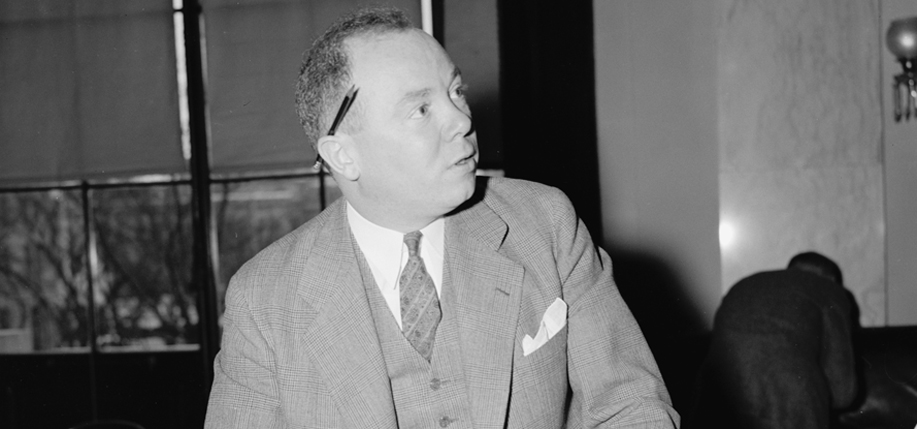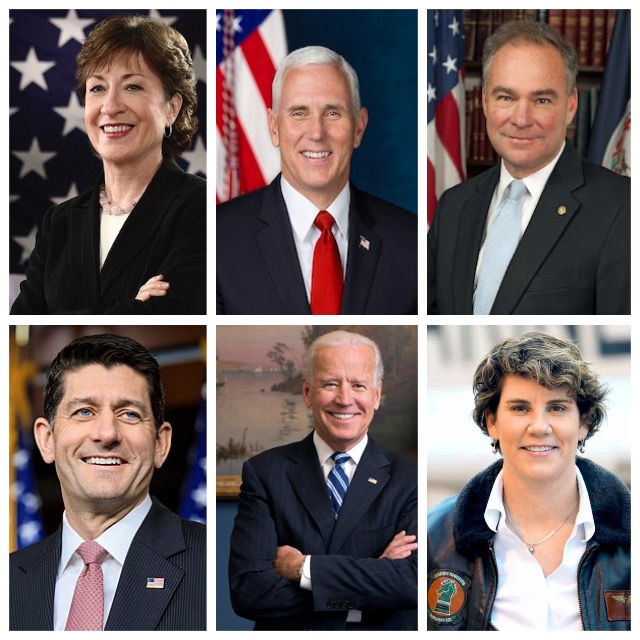Beginning in the 1930s, the Irish became more visible in the ranks of Republicans, disrupting decades-old loyalties writes Robert Schmuhl
From the time of the Great Hunger through the early decades of the 20th century, the American Irish tended to be nearly as faithful to the Democratic Party as to the Catholic Church. Big-city political organizations worked with machine-like efficiency, delivering goods, services and jobs to recent immigrants from Ireland and elsewhere. These new Americans said “thank you” with their Democratic votes each Election Day.
The parish and the precinct – along with the neighborhood pub – were institutions that contributed to shaping the identity and community of Irish Americans. Before long, the hurly-burly of electoral politics seduced second- and third-generation O’Briens and Brennans to run themselves for city and state offices.
A few months before the Easter Rising in 1916, Cecil Spring Rice, the British ambassador to the U.S., wrote back to the Foreign Office in London: “The best politicians in the country are Irish, and the professional Irish politician is against us.”
At that time, almost all “the best politicians” operated out of Democratic headquarters. However, as Irish Americans moved away from their tight-knit precincts and expanded their involvement in the professions, business and other realms, they cast their eyes beyond a single party.
Beginning in the 1930s, the Irish became more visible in the ranks of Republicans. That migration to a political affiliation more in tune with white-collar status and an economically conservative orientation didn’t occur without disrupting decades-old loyalties.
In his still-stimulating and insightful study, The American Irish (1963), William V. Shannon states that John Danaher was the first Irish American to become a U.S. senator as a Republican, winning the 1938 election in Connecticut.

Danaher’s father was responsible for changing “the family’s allegiance to the GOP,” according to Shannon. Discussing the switch, Shannon provides this anecdotal explication: “. . . the story used to be told of the old Irish Catholic lady who said to her friend, ‘Have you heard the news? John Danaher has become a Republican!’ The other replied: ‘It can’t be true. I saw him at Mass just last Sunday.’”
Since Danaher’s days, Irish Catholics have entered the Republican fold with increasing regularity. Today, Senator Susan Collins (Maine), who is up for reelection in November, is one of several prominent Irish Catholic politicians in the GOP. Kevin Owen McCarthy (California) is serving as House Minority Leader in the United States House of Representatives since 2019, having previously served as House Majority Leader under Speakers John Boehner and Paul Ryan.
In 2012, Paul Ryan was selected as Mitt Romney’s running mate, pitting him against incumbent vice president Joe Biden, a Democrat. Four years earlier, Biden, who grew up in a working-class Irish family in Scranton, Pennsylvania, was elected as the first Catholic to serve a heartbeat away from the presidency.
Actually and symbolically, having Ryan and Biden as competitors on the national tickets offered an undeniable message. Both major political institutions now welcomed the participation of Irish Catholics at the highest ranks of government.
Four years later, Tim Kaine, Hillary Clinton’s sidekick on the Democratic ballot, proudly told those gathered at the American Ireland Fund’s 2016 Washington, D.C., dinner, “I am pure black-Irish.” Indeed, Kaine’s four grandparents were all born to Irish immigrants who’d come to the U.S.
In terms of religion, he received a Jesuit education and later worked with Catholic missionaries in Honduras for a year. The Virginia senator (and that state’s former governor) once remarked, “My faith is central to everything I do.”
Mike Pence, the Indiana governor who became Donald Trump’s Republican running mate in 2016, and was later elected vice president, is a curious yet instructive case of change and assimilation in contemporary America.
“The family’s Irish Catholic roots run deep,” The New York Times reported about Pence shortly after his nomination. “Mr. Pence’s maternal grandfather, with whom he was especially close, came to America in 1923 from Ireland and settled in Chicago, where he eventually became a bus driver.”
Pence’s parents and five siblings idolized John Kennedy, and young Mike’s devotion to Democrats continued through his early 20s. But he, unlike other members of his family, started to move away from Catholicism and Democratic allegiance after he had a religious experience in college. He now considers himself an evangelical Christian.
Whatever the outcome of this year’s election—and 2020, of course, features the proud Irish American Biden at the top of the Democratic ticket – Pence’s life story provides evidence of another dimension of the religious and political dispersion within Irish America over time.
Homogeneity of a community lasts just so many generations before other forces challenge established practices and create change. Heritage is important, but it doesn’t necessarily determine one’s future path.
In 2020, the Irish continue to contribute to the vigor and importance of America’s political—and governmental—life, as they have for almost two centuries.
And, with Amy McGrath, the former Marine fighter pilot, attempting to oust Senate Majority Leader Mitch McConnell in a Kentucky donnybrook, the full Irish fight in politics is on display this year with Democrats and Republicans alike.
For a different perspective read Tom Deignan’s Reagan Democrats, Biden Time, and the Irish Swing Vote.
 Robert Schmuhl is professor emeritus of American Studies at the University of Notre Dame and adjunct professor in the School of Law and Government at Dublin City University. His most recent book is The Glory and the Burden: The American Presidency from FDR to Trump.
Robert Schmuhl is professor emeritus of American Studies at the University of Notre Dame and adjunct professor in the School of Law and Government at Dublin City University. His most recent book is The Glory and the Burden: The American Presidency from FDR to Trump.


Leave a Reply